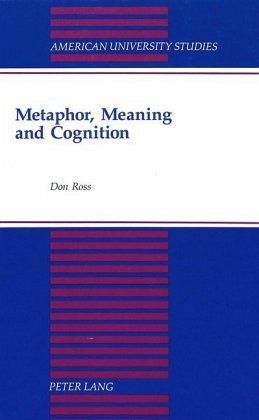Nicht lieferbar

Metaphor, Meaning and Cognition
Versandkostenfrei!
Nicht lieferbar
This book explores and offers solutions to a range of conceptual and philosophical problems that underlie attempts to understand metaphor processing in the context of cognitive science. The author vigorously criticizes the prevailing philosophical prejudice against traditional "comparison" theories of metaphor, arguing that the problems with the comparison theory are exciting problems that demand solutions , rather than grounds for rejecting the theory itself. Furthermore, it is through these problems that the study of metaphor processing is linked to wider issues in cognitive science, includi...
This book explores and offers solutions to a range of conceptual and philosophical problems that underlie attempts to understand metaphor processing in the context of cognitive science. The author vigorously criticizes the prevailing philosophical prejudice against traditional "comparison" theories of metaphor, arguing that the problems with the comparison theory are exciting problems that demand solutions , rather than grounds for rejecting the theory itself. Furthermore, it is through these problems that the study of metaphor processing is linked to wider issues in cognitive science, including disputes about computational architectures and neural mechanisms.



